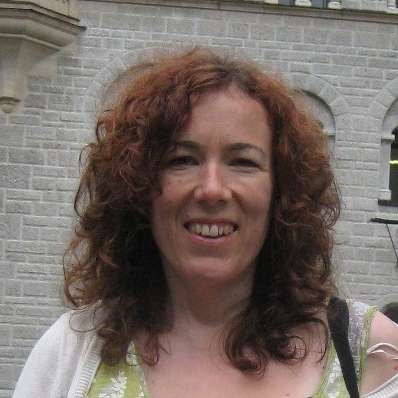Three of the four American pieces performed this evening by Northern Sinfonia were written to evoke very particular places, and got me thinking about the evocative power of a well-chosen title. The concert opened and closed with two pieces by Aaron Copland: Quiet City, a tone poem salvaged from music written for an unsuccessful play; and one of his best known pieces, the Appalachian Spring ballet suite. Two very different scenarios: the introspective and haunting sound of a city at night, and the simple joys of the rugged outdoor pioneer life, and yet both works sounded remarkably similar. Then I read the programme notes and discovered that the title of Appalachian Spring was only applied after the music was completed, and even so, Copland was warmly congratulated for his skill at evoking the Appalachian mountains.
Quiet City is a beautifully simple piece, scored for small string orchestra with solo trumpet and cor anglais. Richard Martin’s trumpet playing had a lovely warmth and the sort of lyricism that we usually expect only from the larger brass instruments: proof that trumpets don’t always have to be loud. The opening repeated notes of the trumpet solo, echoed in a muted coda, suggested the hoots of distant car-horns, immediately setting us in the heart of a busy city. Using the warm reedy tone of the cor anglais was an inspirational piece of instrumentation on Copland’s part, Michael O’Donnell’s silky playing suggesting late-night jazz and quiet conversation.
Appalachian Spring is probably best known for its quoting of the old Shaker song Simple Gifts and this section was the highlight of a performance that, at times, seemed to lose its way – and in fact, throughout the concert, the livelier sections were better suited to the exuberant style of guest conductor Nicholas Collon. The Shaker song begins with a solo clarinet, played with a lovely lightness of touch by Jessica Lee, before being taken up warmly by the strings, and elaborated on by flourishes from piano and flute.
The other programmatic work of the evening was Charles Ives’ Three Places in New England. Ives combined composing with a day-job running an insurance company, and much of his pioneering music was left archived in his house, to be discovered and performed after his death. Three Places in New England is an impressionistic mixture, full of quotations from popular American songs, and atmospheric scene-setting. The most effective part of tonight’s performance was the gloriously chaotic second movement, Putnam’s Camp, Redding, Connecticut, in which rival bands at a Fourth of July picnic recall the two approaching armies on the battlefield. Nicholas Collon held the competing bands together wonderfully, and it was so much fun, it was hard to contain my laughter (and glancing around, I could see I was not alone in this).
The central work of tonight’s concert was Samuel Barber’s hugely demanding cello concerto, played superbly by Northern Sinfonia’s hard-working cello section leader, Louisa Tuck (amazingly, she was back in the cello section for Appalachian Spring instead of enjoying a well-earned rest). Not only is Barber’s concerto technically challenging, but the soloist must overcome the psychological obstacle of knowing that it was written very specifically for one performer, Raya Garbousova, who subsequently made it her own. Louisa Tuck rose admirably to the challenge, putting in an accomplished performance – the intricate semiquaver passages in the last movement were particularly effective. She is a very physical performer, even when she’s at her usual orchestral desk, which makes her fascinating to watch. Unlike some soloists, she doesn't make her playing look effortless, and has no inhibitions about showing us just how much work this music demands, or at times, just how much she was enjoying herself.
The outside movements of the concerto are fast and furious – quite a surprise to anyone who has only previously heard Barber’s famous Adagio, and just the sort of music that Northern Sinfonia play so infectiously. The slow movement brought Michael O’Donnell back under the spotlight, this time in a long oboe duet with the cello, but it was the excitement of the fast movements that showed the talent and spirit of Northern Sinfonia at their best.


